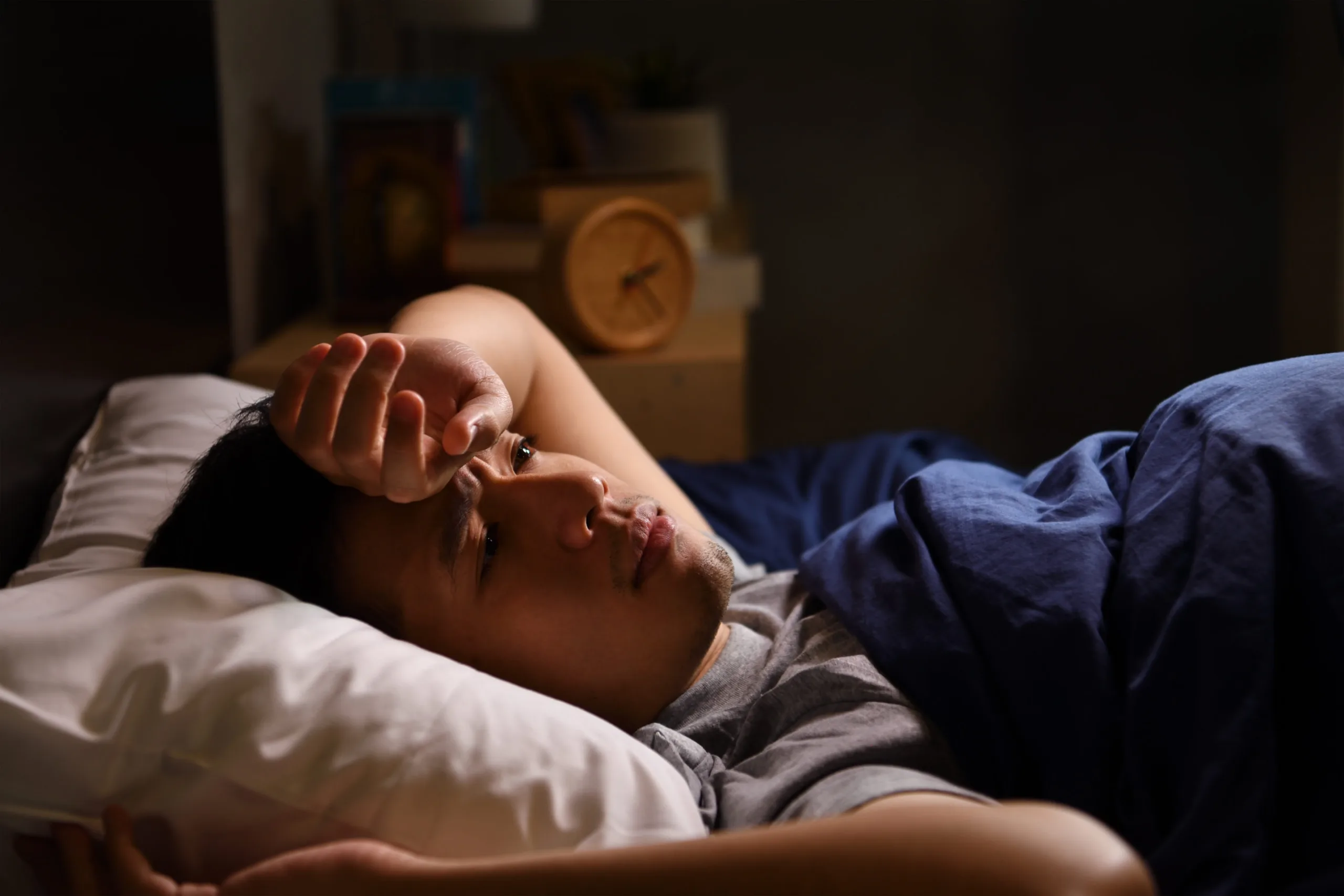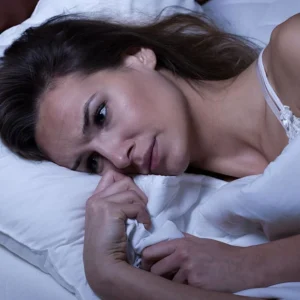Psychophysiological insomnia, also known as primary insomnia, refers to a type of insomnia where an individual has difficulty falling or staying asleep. This often happens due to psychological or physiological factors.
It is one of the most common types of insomnia and is characterized by a combination of psychological and physiological factors. More than often, these are what contribute to sleep difficulties. In this blog, we will discuss the types of psychophysiological Insomnia, alongside treatment options. Moreover, we will include treatment options for psychophysiological insomnia. To begin with, let us start with the contributing factors of psychophysiological Insomnia.
Contributing Factors of Psychophysiological Insomnia
Psychological factors may include stress, anxiety, depression, or excessive worrying about sleep itself. These factors can lead to heightened arousal and a hyperactive mind, making it difficult to relax and fall asleep.
Physiological factors may include abnormalities in the body’s sleep-wake cycle, such as irregularities in the production of sleep-inducing hormones like melatonin. Moreover, it could be disruptions in the functioning of the body’s internal clock (circadian rhythm).
Additionally, individuals with psychophysiological insomnia may have heightened physiological responses to stress, such as increased heart rate or muscle tension. This can further interfere with sleep.
The cycle of insomnia can become self-perpetuating, where worrying about sleep difficulties can exacerbate the problem. As a result, this leads to increased arousal and further sleep disturbances.
Treatment for psychophysiological insomnia often involves a combination of cognitive-behavioral therapy (CBT) techniques, relaxation exercises, and, in some cases, medication. Thus, contributing to help break this cycle and improve sleep quality.
Types Of Psychophysiological Insomnia
Psychophysiological insomnia, also known as primary insomnia, can manifest in various ways. Hence individuals may experience different types of symptoms or patterns of sleep disturbances. All in all, the core features remain consistent: difficulty falling asleep, staying asleep, or experiencing non-restorative sleep. Here are some common types or manifestations of psychophysiological insomnia:
-
Sleep Onset Insomnia:
This type involves difficulty initiating sleep at the beginning of the night. Individuals may find themselves lying awake in bed for an extended period before finally falling asleep.
-
Sleep Maintenance Insomnia:
This type involves difficulty staying asleep throughout the night. Individuals may wake up frequently at night and have trouble returning to sleep, leading to fragmented or disrupted sleep.
-
Early Morning Awakening Insomnia:
With this type, individuals wake up earlier than desired and find it difficult to go back to sleep. They may awaken several hours before their intended wake time and struggle to fall asleep again.
-
Non-Restorative Sleep:
Some individuals with psychophysiological insomnia may experience sleep that is superficial/non-restorative, even if they manage to sleep for an adequate duration. They may wake up feeling unrefreshed or tired despite spending enough time in bed.
-
Sleep Anxiety:
Anxiety about sleep itself can be a prominent feature of psychophysiological insomnia. Individuals may develop intense worry or fear about their ability to fall asleep or about the consequences of poor sleep. As a result, it can further exacerbate their sleep difficulties.
-
Sleep Hygiene Insomnia:
Poor sleep habits and lifestyle factors can contribute to psychophysiological insomnia. This may include irregular sleep schedules, and excessive use of electronic devices before bedtime. Therefore, avoid consumption of stimulants like caffeine close to bedtime, or a sleep environment that is not conducive to relaxation.
-
Hyperarousal:
Heightened physiological and psychological arousal can play a significant role in psychophysiological insomnia. Individuals may have increased heart rate, muscle tension, or racing thoughts, making it challenging to relax and fall asleep.
It’s essential to recognize that individuals with psychophysiological insomnia may experience a combination of these types. This is why the presentation of symptoms can vary from person to person. Treatment approaches typically aim to address underlying psychological and physiological factors contributing to insomnia. Therefore, they may involve a combination of cognitive-behavioral therapy, relaxation techniques, and sleep hygiene education.
Treatment Options for Psychophysiological Insomnia
Treatment options for psychophysiological insomnia typically involve a combination of behavioral, psychological, and sometimes pharmacological interventions. Depending on the complexities and specifications of an individual’s case, these may vary. Here are some commonly used approaches:
Cognitive-Behavioral Therapy for Insomnia (CBT-I):
CBT-I is considered the gold standard for treating insomnia, including psychophysiological insomnia. It targets the cognitive and behavioral factors that perpetuate sleep difficulties. Key components of CBT-I may include:
-
Sleep hygiene education:
Teaching individuals about healthy sleep habits and behaviors.
-
Stimulus control therapy:
Helping individuals associate the bed and bedroom with sleep by limiting activities in bed.
-
Sleep restriction therapy:
Temporarily restricting time spent in bed to match actual sleep time, gradually increasing it as sleep efficiency improves.
-
Relaxation techniques:
Teaching relaxation exercises such as progressive muscle relaxation, deep breathing, or mindfulness meditation to reduce arousal and promote sleep.
-
Biofeedback:
Biofeedback techniques help individuals learn to control physiological processes such as heart rate and muscle tension, which may contribute to sleep difficulties.
-
Sleep Restriction Therapy:
This technique involves limiting the time spent in bed to match the individual’s actual sleep time, gradually increasing to improve sleep efficiency.
-
Medications:
In some cases, short-term use of sleep medications may be prescribed to help manage insomnia symptoms. These medications may include benzodiazepines, non-benzodiazepine hypnotics (e.g., zolpidem, eszopiclone), or sedating antidepressants. However, medications are typically not recommended as a long-term solution due to the risk of dependence and side effects.
- Mindfulness-Based Therapies:
Practices such as mindfulness-based stress reduction (MBSR) or mindfulness-based cognitive therapy (MBCT) help individuals develop greater awareness and acceptance of their thoughts. Other than that, this also focuses on emotions, which may contribute to improved sleep.
-
Light Therapy:
For individuals with circadian rhythm disturbances contributing to insomnia, light therapy may be beneficial. This involves exposure to bright light, typically in the morning, to help regulate the body’s internal clock.
-
Relaxation Techniques:
Progressive muscle relaxation, deep breathing exercises, guided imagery, and other relaxation techniques can help reduce physiological arousal and promote sleep.
-
Sleep Environment Optimization:
Creating a sleep-friendly environment by minimizing noise, light, and temperature disruptions can improve sleep quality.
Individuals with psychophysiological insomnia need to work closely with healthcare professionals. Primary care physicians, sleep specialists, or psychologists help determine the most appropriate treatment plan tailored to their specific needs and circumstances. Additionally, addressing any underlying psychological issues, such as stress, anxiety, or depression, may be an essential component of treatment.
Wrapping It Up
Coping with psychophysiological insomnia involves establishing a consistent sleep schedule and creating a conducive sleep environment. Set a regular bedtime and wake-up time, and make your bedroom comfortable, quiet, and dark.
Additionally, practice relaxation techniques like deep breathing or meditation before bedtime to calm your mind. Limiting screen time before bed, reducing caffeine and alcohol intake, and seeking professional help if needed can also be beneficial in managing psychophysiological insomnia.
Remember, small changes in sleep habits and lifestyle can make a big difference in improving sleep quality over time. Thus, individuals need to opt for online insomnia doctor consultation. This will contribute to one’s around-the-clock ease in the long run.





